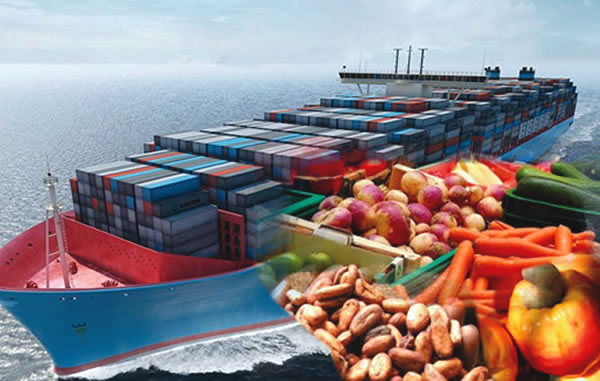Ghana is a country with a rich agricultural tradition and a wide range of agricultural products that are grown and produced within its borders. From cocoa to rice, Ghana has a diverse and abundant agricultural sector that has the potential to play a significant role in the country’s economic development. However, exporting these products to international markets can be a challenging endeavor, and there are a number of challenges and opportunities that must be considered in order to make agriculture exportation in Ghana a success.
One of the major challenges faced by Ghana in exporting agriculture products is the lack of infrastructure. Many rural areas in Ghana have poorly developed transportation systems, which makes it difficult to get produce from the farm to the market. In addition, the lack of storage and processing facilities means that produce often spoils before it can be sold. These challenges make it difficult for Ghana to compete with other countries that have more developed infrastructure.
In order to overcome these challenges and improve the infrastructure for agriculture exportation in Ghana, the government and private sector can take a number of steps. This might include investing in the development of transportation systems, such as roads and ports, and building storage and processing facilities that can help to reduce spoilage and improve the quality of the produce being exported. In addition, providing training and support to farmers and producers can help to improve their productivity and efficiency, which can in turn increase the competitiveness of Ghanaian agriculture products on the global market.
Another challenge faced by Ghana in exporting agriculture products is the lack of access to international markets. Many developed countries have strict food safety regulations and other barriers that make it difficult for Ghanaian producers to access these markets. This limits the potential market for Ghanaian agriculture products and makes it difficult for the country to gain a foothold in international markets.

To overcome this challenge, the government and private sector can work to improve the capacity of Ghanaian producers to meet food safety standards. This might involve providing training and technical assistance to farmers and producers, as well as investing in the development of food safety infrastructure, such as laboratories and inspection facilities. In addition, negotiating trade agreements and building relationships with buyers in international markets can help to improve access to these markets and increase the competitiveness of Ghanaian agriculture products.
Despite these challenges, there are also a number of opportunities for Ghana to export its agriculture products. One of these opportunities is the growing demand for organic and sustainable agriculture products. As consumers in developed countries become more aware of the environmental and health impacts of industrial agriculture, they are increasingly seeking out alternatives such as organic produce. This presents an opportunity for Ghanaian producers to tap into this demand and export their products to these markets.
Another opportunity for Ghana is the potential to tap into emerging markets in other developing countries. As these countries experience economic growth and urbanization, their demand for food is likely to increase. This presents an opportunity for Ghana to meet this demand and export its agriculture products to these markets.
In order to take advantage of these opportunities, the government and private sector in Ghana will need to invest in the development of the country’s agricultural sector. This might involve investing in the infrastructure needed to support agriculture exportation, such as transportation systems and processing facilities, as well as providing training and support to farmers and producers. In addition, building relationships with buyers in international markets and negotiating trade agreements can help to improve access to these markets and increase the competitiveness of Ghanaian agriculture products.
Finally, while exporting agriculture products from Ghana may present challenges, there are also a number of significant opportunities that can be pursued in order to make agriculture exportation in Ghana a success. By investing in the development of the country’s agricultural sector and building relationships with buyers in international markets, Ghana has the potential to significantly increase its exports of agriculture products and drive economic growth and development.


